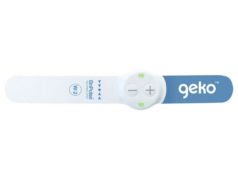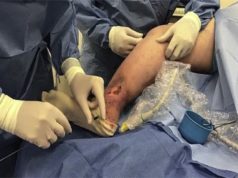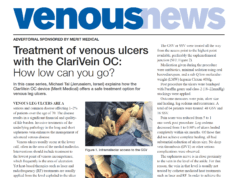
The Royal Society of Medicine Venous Forum council has created a document that is intended to aid physicians when treating patients with leg ulcers.
The document, “Management of Patients with Leg Ulcers”, indicates that urgent action is needed to ensure that all patients with leg ulceration are offered the most appropriate care. Leg ulcers cause great distress to patients and cost the UK National Health Service (NHS) millions of pounds each year. The prevalence of leg ulcers is increasing and all patients require specialist assessment and most would benefit from compression and treatment of their veins. According to the document, despite evidence-based guidelines for referral and treatment, current service provision remains poor.
The document was developed to address the challenges associated with leg ulcers. It highlights the fact that leg ulcers are non-healing wounds on the lower leg usually due to an underlying problem with veins, and sometimes arteries. Most leg ulcers are caused by chronic venous hypertension and usually take many months to heal. Without appropriate care up to two-thirds of healed ulcers will recur within a year.
While most patients with leg ulcers are managed in community healthcare settings, data from general practitioner (GP) records suggest that at least half of these patients do not receive the care they need. Chronic wound care is estimated to cost between £4.5–£5.1 billion per year, and a third of these wounds are leg ulcers.
The Venous Forum council made the following recommendations:
- Every patient with a leg ulcer should have an ankle brachial pressure index (ABPI) assessment (‘Doppler’) on initial presentation to assess the arterial circulation.
Rationale: Doppler assessment of ABPI is a valid and reliable way to detect arterial impairment in the lower limb. - All patients with an adequate arterial supply (ABPI>0.9) should be offered effective compression.
Rationale: Good compression doubles the chance of healing venous leg ulcers. - All patients should be referred to a vascular service for vein assessment.
Rationale: Duplex examination is the gold-standard method for identifying treatable venous problems. - All patients with treatable venous hypertension should be offered minimally invasive interventions (e.g. endothermal ablation or foam sclerotherapy).
Rationale: Superficial venous treatment halves the risk of ulcer recurrence.









